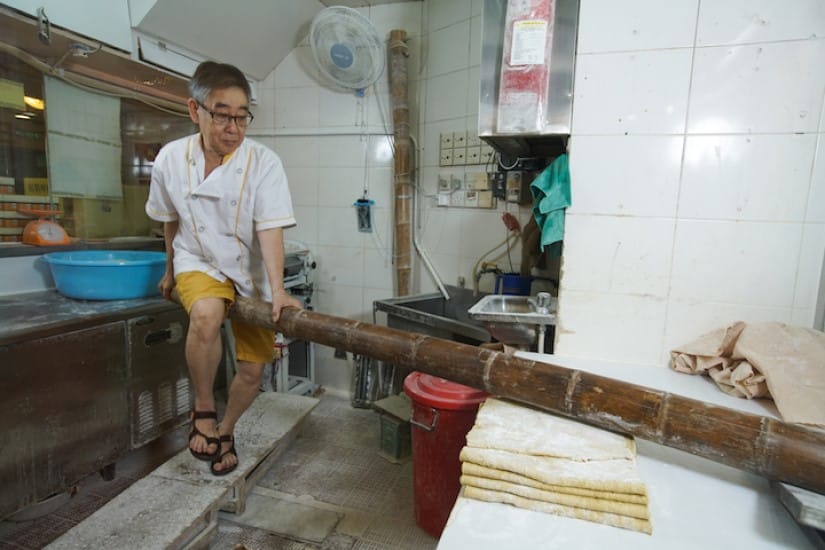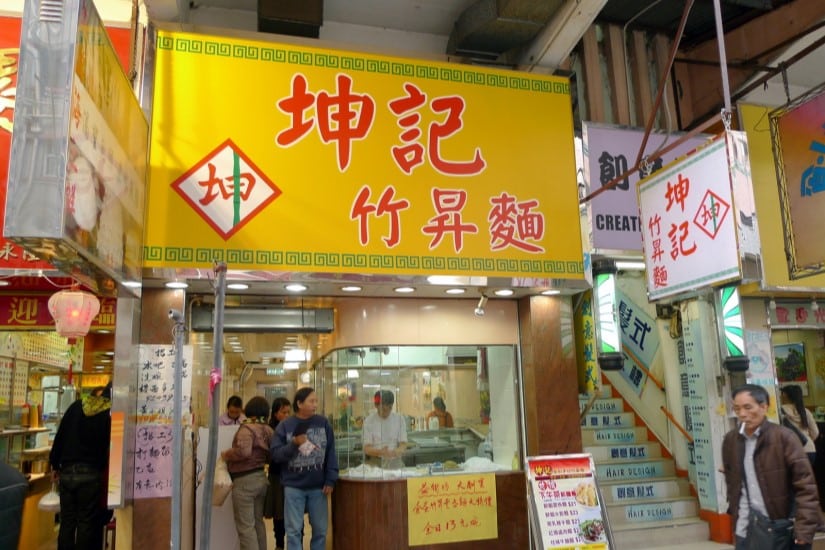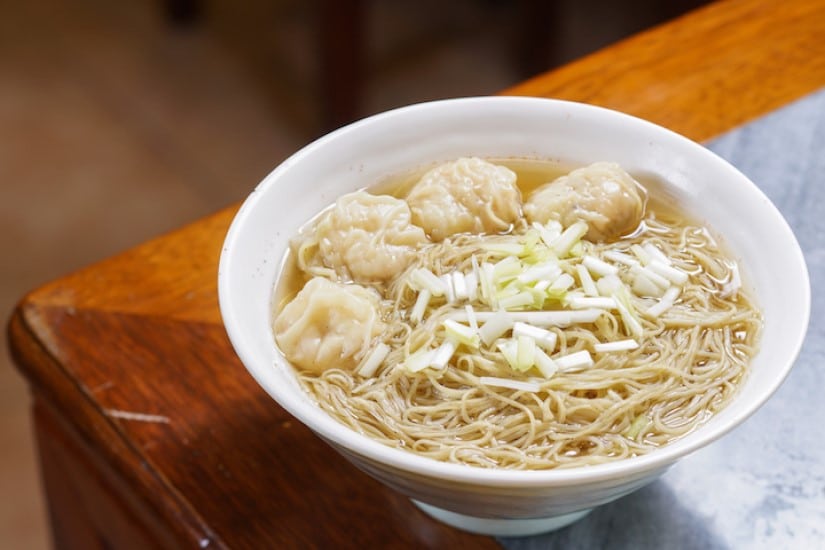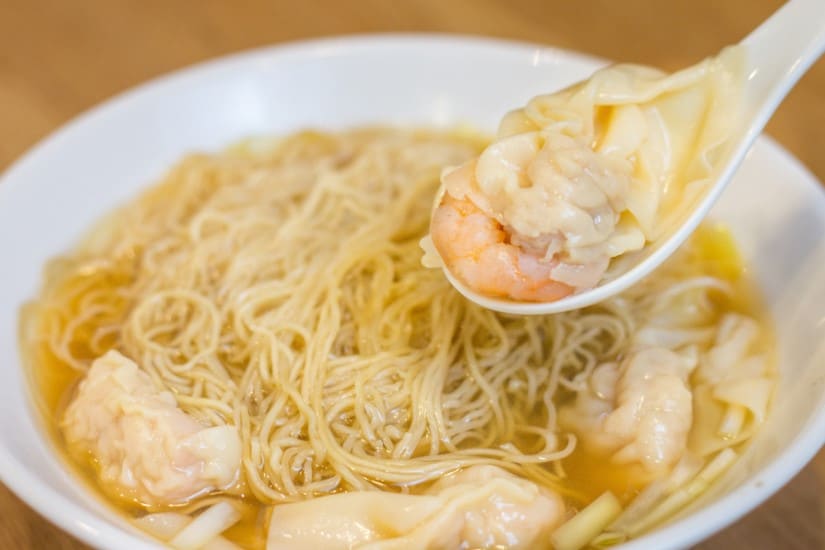A good traditional food is not only about taste, but also emphasizes its craftsmanship. Traditional cuisine is not necessarily expensive; on the contrary, affordable food can also be traditional cuisine with superb craftsmanship. Therefore, this article will explain the past history of bamboo pole noodles and introduce Kun Kee Bamboo Pole Noodles, which has been recommended by the Michelin Guide for ten consecutive years. We hope everyone has the opportunity to taste this traditional food.
Hong Kong has always had a lot of traditional cuisine, many of which are not only delicious but also require skill. Even with modern machines, it is difficult to replicate and reproduce traditional techniques, showing the depth of craftsmanship. Bamboo pole noodles are one of the representatives. Bamboo pole noodles have experienced a rise over the past century.
The History of Bamboo Noodle
Bamboo noodle soup has been around since the Republic of China era and was popular in the Xiguan area of Guangzhou. Its origins are unclear, but it was loved by people at that time, who could enjoy a bowl in the morning or afternoon. As time passed, it gradually spread and became part of the lives of residents in surrounding cities, including naturally Hong Kong.
The method of making bamboo pole noodles is very particular about the master’s technique. First, the dough is kneaded and mixed using traditional methods, then pressed with a bamboo pole, which is where the name “bamboo pole noodles” comes from.

At the same time, the bamboo used for making bamboo pole noodles is carefully selected. It needs to be thick enough to ensure a larger pressing surface, replacing the hands of the person. After the master kneads the dough, they place it on the cutting board, then sit on the end of the bamboo pole and use their feet to press and roll the dough. The master needs to press and move at the same time to evenly distribute the force on the dough, softening it. After one or two hours, the dough can be rolled and pulled into thin noodles like silver threads.
The characteristic of Zhusheng noodles is the alkaline water content during production. Unlike regular noodles, the alkaline water content is not added during the kneading process. The biggest challenge lies in maintaining the same smooth and chewy texture even with the alkaline water content. Additionally, Zhusheng noodles are different from regular noodles as they use duck eggs instead of chicken eggs, resulting in a refreshing and fragrant egg flavor.

Kun Kee Bamboo Noodle
Although the production of bamboo pole noodles is very difficult, to the point that bamboo pole noodles are gradually disappearing in Hong Kong, Kun Kee Bamboo Pole Noodles still insists on using traditional craftsmanship, hand-making noodles using bamboo poles. It is precisely because of the unique texture of bamboo pole noodles that, in order to preserve tradition, they have not switched to machine-made noodles.

For ten consecutive years, Kun Kee Bamboo Noodle has been recommended by the Michelin Guide. Of course, Kun Kee Bamboo Noodle has its own secret recipe. It has been a family tradition for 120 years, and has gone through different generations, achieving today’s success through countless improvements in ingredients and techniques.

Due to the gluten content of the flour being the key factor affecting the chewiness of noodles, Kun Kee Bamboo Ascending Noodles uses a mixture of high-gluten and low-gluten flour in different proportions, along with duck eggs and a suitable amount of alkaline water. The master’s unique skill of “bamboo pole pressing noodles” is the most crucial step that machines cannot replace. Every time 20 catties of noodles are made, the master must step on them for 25 minutes to ensure that the noodles are chewy and springy enough.
Address: Shop E, Wing Shun Building, 1-7 Wing Lung Street, Cheung Sha Wan, Hong Kong.
Business hours: 10:00 am – 9:00 pm
Phone: 34849126

